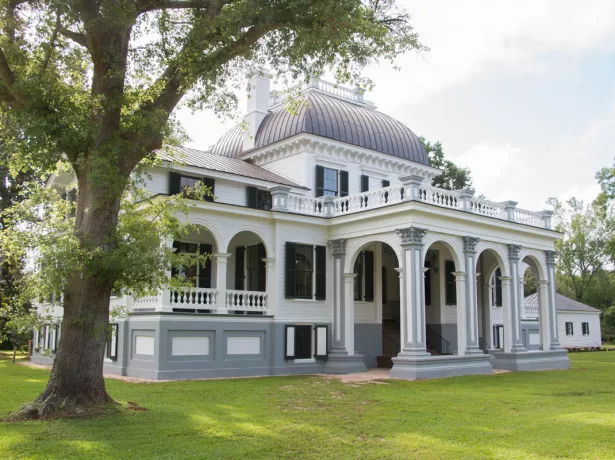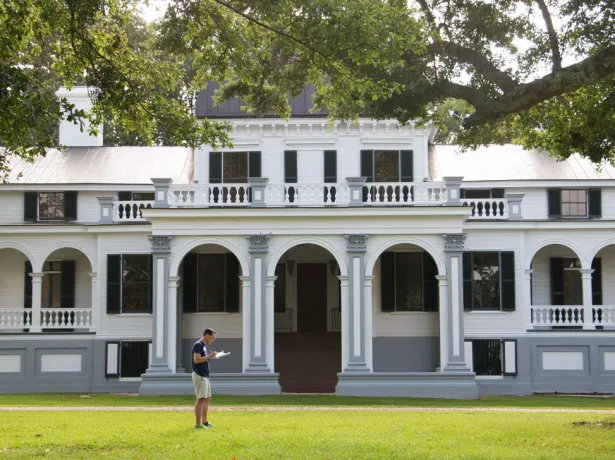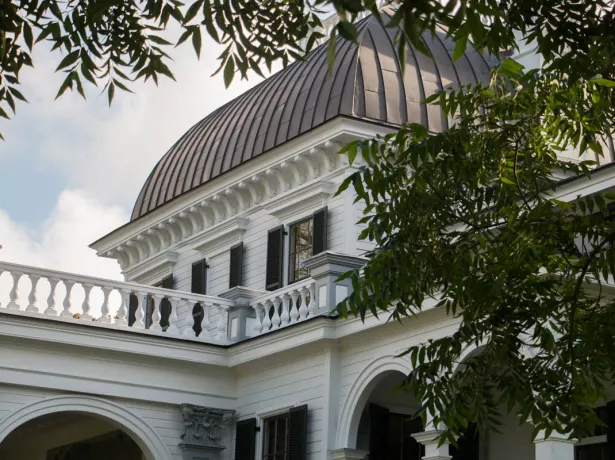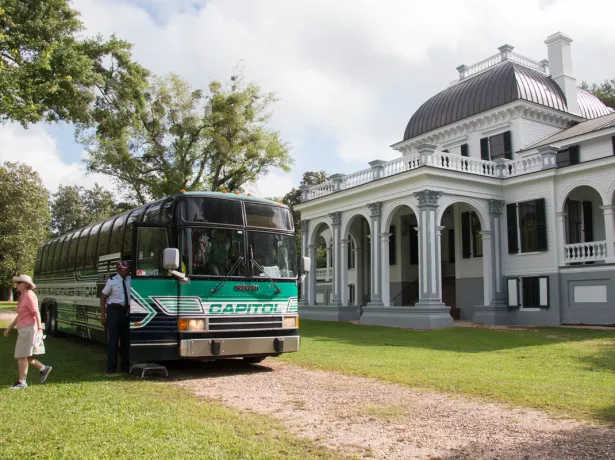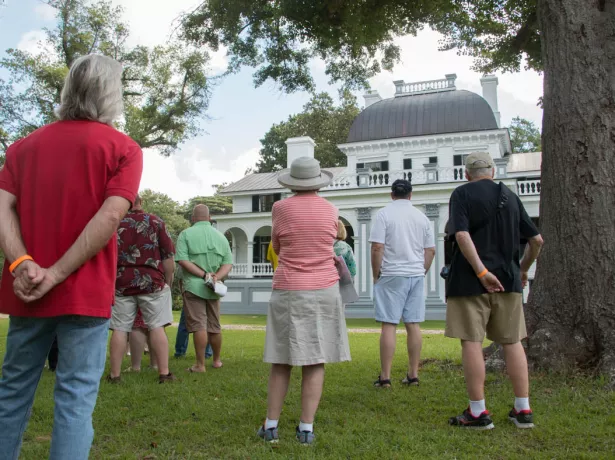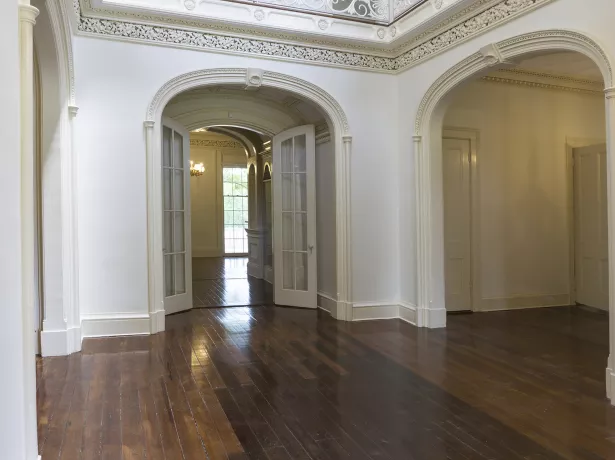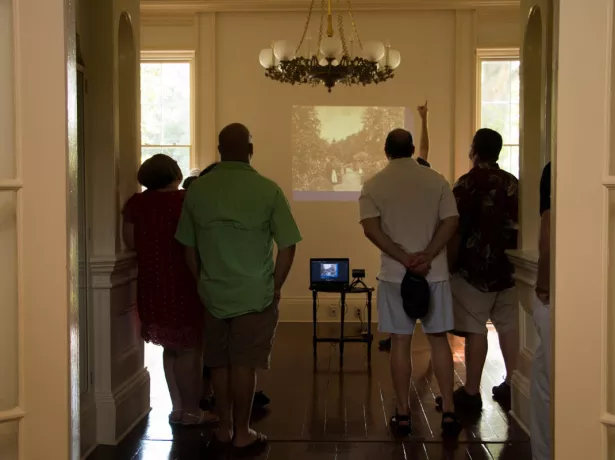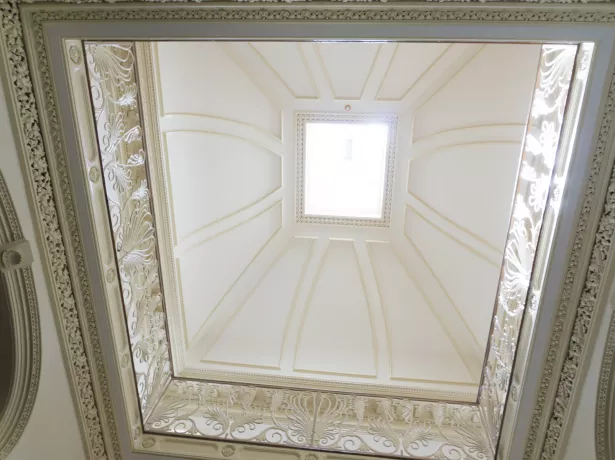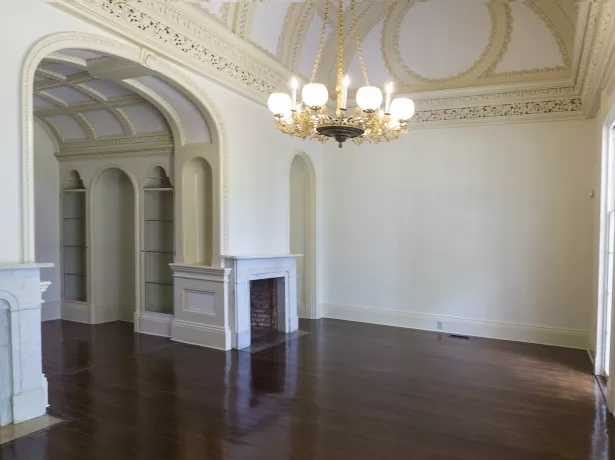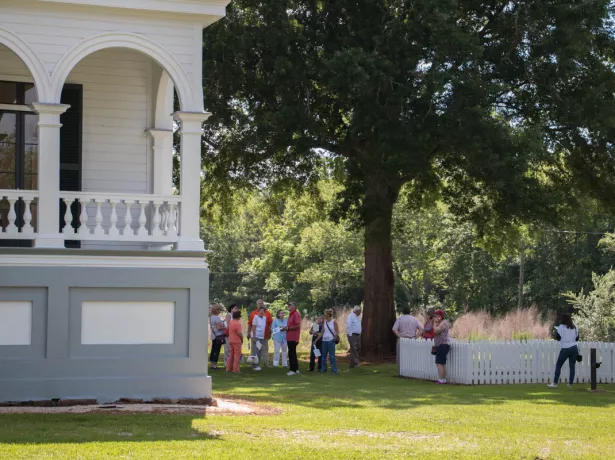Saturday, October 12th
10 a.m. — 4 p.m.
Kensington Mansion Tours
Tour begins at Eastover Park : 1031 Main Street, Eastover, SC 29044
UPDATED May 15, 2024: This event was POSTPONED from May 18, 2024, due to the threat of inclement weather. No additional tickets will be made available.
Join Sylvamo and Historic Columbia for an exclusive access public tour of Kensington Mansion on Saturday, May 18. Tours will take place at 10:00 a.m. (SOLD OUT) and 2:00 p.m. (SOLD OUT). Each tour experience lasts approximately two hours. Please ensure that you select your preferred tour time when purchasing tickets.
$10 | Sylvamo employees (On sale now)
$10 | Historic Columbia members (On sale now) — Become a member today for advance ticketing!
$25 | Non-members (On sale April 1)
Purchase Tickets:
Kensington Tours are SOLD OUT (Updated 4/1/24).
Tour Overview
Tours will focus on the site’s unique architectural features, restoration and rehabilitation of the mansion, and life at this Singleton family plantation during the period of the mansion’s construction, 1852 to 1854. Kensington Mansion is unique for its melding of architectural styles and for its association with Jacob Stroyer, who was enslaved at the site as a child and wrote extensively about his experiences in My Life in the South. Through Stroyer’s memoir and other primary source documents, participants will learn about the site and what life was like for the people enslaved by the Singleton family.
More Information
History
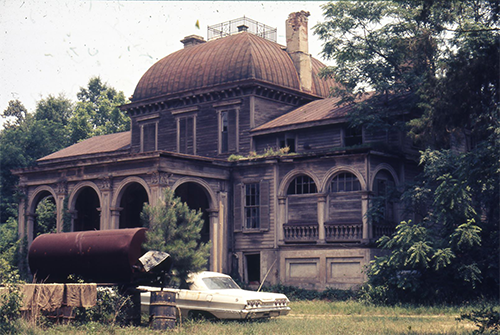
Kensington Mansion is a Renaissance Revival Villa style mansion built between 1852-1854 as part of the Headquarters Plantation. It has 29 rooms and 12,000 square feet of floor space. Stylistically, Kensington is a contradiction. At its most basic, the home is a wooden farmhouse. The construction materials and design reflect the owners’ need for functionality. The Italianate and Second Empire flourishes, on the other hand, are lavish and wedged whimsically into the design. While both styles are significant in their own rights, the combination found at Kensington makes the site unique in South Carolina. They reflect its owners’ experience in the antebellum South: existing in a culture entirely dependent upon slave-based agriculture while simultaneously seeking luxury and wealth on an international scale.
Kensington’s owners, Colonel Richard Singleton and later his son Matthew R. Singleton, enslaved several hundred people across a network of plantations in Richland, Orangeburg, and Sumter districts at the time of the mansion’s construction. Much of what is known about Kensington Mansion and Headquarters Plantation on topics ranging from indoor plumbing to horse training to the heart wrenching separation of enslaved families comes from letters written by the Singleton family, the memoir of Jacob Stroyer–who was enslaved at the site as a child– and the inventory and appraisals of both Richard and Mathew R. Singleton, who died at the beginning and end of the mansion’s construction, respectively.
Sylvamo, formerly International Paper and Union Camp, purchased the Kensington property in the early 1980s and restored the mansion after it had been used as a storage area for farm equipment, fertilizer, and feed for animals. Over the years, Sylvamo has used the property for a variety of company and community purposes and the property has had varying levels of public access. At this time, Kensington will be opened for select tours one to two times per year to offer the community a chance to learn about the site.
